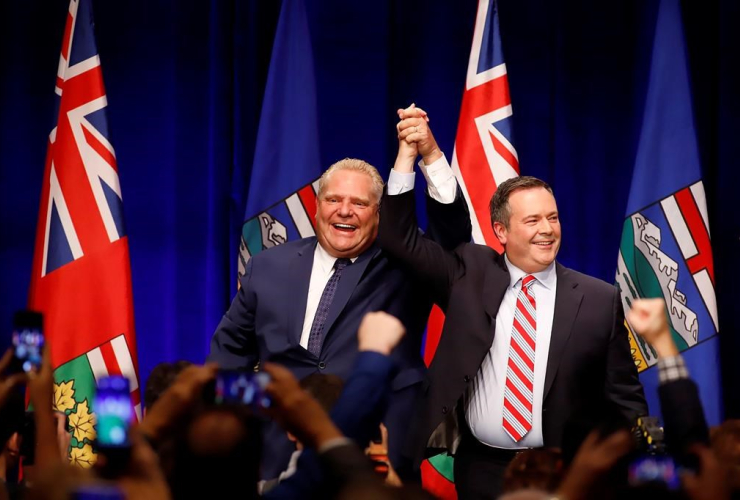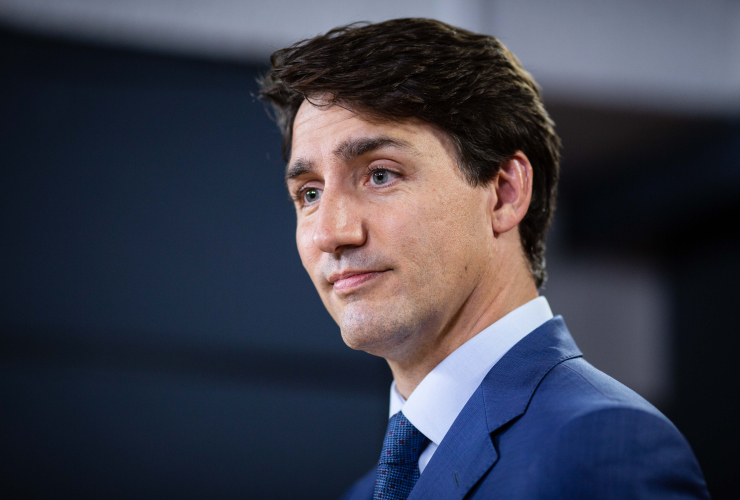Curbing the catastrophic effects of climate change is not that complicated. You can pay now to avert the worst effects or you can pay later to repair them. That’s the fundamental message of the report offered by 91 scientists to the United Nation’s Intergovernmental Panel on Climate Change. The scientists concluded that those catastrophic effects are coming on faster than they had previously predicted and require quick and cooperative global responses on a never before achieved scale.
Ah, there’s the rub.
Quick and cooperative.
So far, we, the human race, have been neither. The voluntary limits on carbon emissions adopted in Paris are nowhere near enough to head off the continued warming of the atmosphere, the scientists concluded. And, in any case, the leader of the world’s largest economy, Donald “I’m not the president of the globe,” Trump, says he’s walking out because the deal isn’t good enough for America.
Canadians are hardly in a position to gloat about this. The scientific panel suggests a uniform global tax on carbon as the most powerful way to reduce emissions and drive development of clean and renewable forms of energy. Canada can’t even come to consensus on a uniform national tax.
In that way, we are representative of the global challenge.
“We understand the science. We understand the effects of climate change. But we don’t understand how to bring countries together.”
That is from the economist whose work undergirds the UN report. His name is William Nordhaus. He is a professor at Yale and on Monday, just a few hours after the UN report was released, he was awarded the Nobel Prize in Economic Science for his work. That included making the case that “the most efficient remedy for the problems caused by greenhouse gas emissions would be a global scheme of carbon taxes that are uniformly imposed on all countries.”
Just to say it is to make clear the challenge. Science is the discipline of seeing the world as it is. Politics is the art of the possible. Right now there is a very large gap between the two.
It would be wrong to understand the IPCC report as merely gloom and doom, although there surely is a good dose of that (dead reefs, melted ice caps, lost ecosytems). Indeed, the report is baked through with a generation of lessons on how merely sounding alarms can be counter productive. Something about crying wolf. But now the wolf is not at the door, it's well through it. As we receive this warning to reduce carbon emissions faster they are in fact starting to rise again.
Our challenge isn’t the science, it is human nature. Don’t do today what you can put off until tomorrow and don’t expend your resources on something for the general good until you’re sure everyone else is in, too. Add to this that we have no effective political system for making decisions that require cooperation and coordination at a global level.
What the scientists were trying to do, and what professor Nordhaus has been trying to do for years, is provide decision makers with a broader understanding of the real costs and consequences of different paths. Doing not much may seem cheap now. But doing too little now will cost trillions later to repair the damage of severe weather events, remove carbon from the atmosphere, and relocate millions of people displaced by flooding. A central point of the IPCC report is that later is coming sooner than we thought.
More than anything, professor Nordhaus and the IPCC report are trying to dispel magical thinking. Yes, we have been making progress in bringing down the cost of alternative sources of energy. Just yesterday a Dutch company spent half a billion US dollars to buy a US wind company. That’s the marketplace saying there is money to be made. But innovation is not moving fast enough and emissions are not falling fast enough to avert catastrophe, according to the IPCC report.
Which brings us back to leadership. The scientists have given us a map with various paths. We would like to see every Federal and provincial leader of every party read this report and then tell us which path they pick and why. There is no free lunch. But some choices are clearly better for humanity than others. Paying more now to avert catastrophe later seems a better choice.
To Canada's leaders: we await your response.
They have told us what they
They have told us what they're doing. Ramping up fossil fuel production and sales around the world. Beginning in January we're going to begin paying a carbon tax to pay for their increased carbon footprint.
Agreed, we are ramping up our
Agreed, we are ramping up our fossil fuels with LNG and Transmountain. That is this government’s response.
Corporate media puts climate crisis on the back page. Guess who owns them?
Someone wiser than I reminds us that carbon tax is only one tool, not an overall solution.
When you talk of carbon tax you must include how high is it? If not high enough it’s pointless. Where is the money going?
The rise of right wing, narrow thinking politicians threatens every effort to change.
So, that leaves the people. You and I must move the massive inertia of the politicians and resistance of the wrong headed or apathetic.
Roll up your sleeves and hug your kids or someone else’s.
The recommendation to lobby
The recommendation to lobby our governments to act now on climate change and impending ecological disaster is to the point. Every concerned person ( should be everyone) must start letting politicians know that a little is not enough, and we need action, not more words. This is not just a reason for carbon taxes; it is a reason to end our reliance on fossil fuels for good, stop providing incentives for insane operations like fracking and start really investing in renewable energy.
There is one group of people
There is one group of people that can provide the cure; that group is the Professional Engineers and Geoscientists; they ought to have a good understanding of the issues as they are scientists. They should simply refuse to work on fossil fuel projects.
Those in BC should also go to the EGBC AGM on October 20 in Vancouver and vote on the relevant motions.




Comments